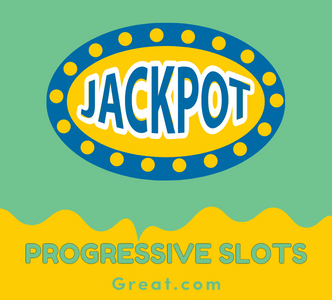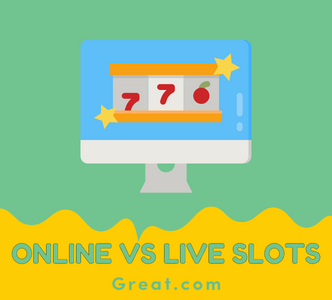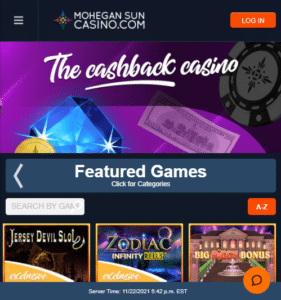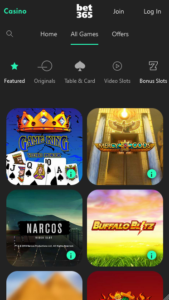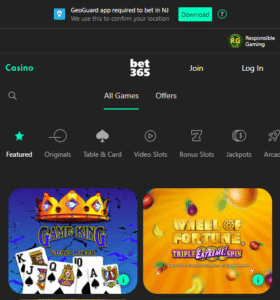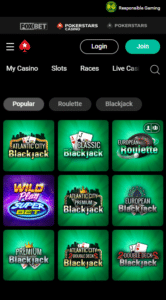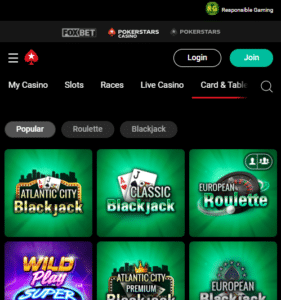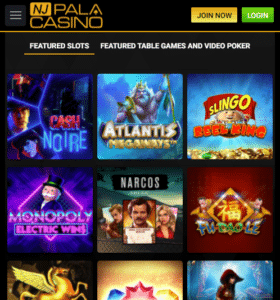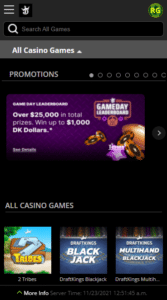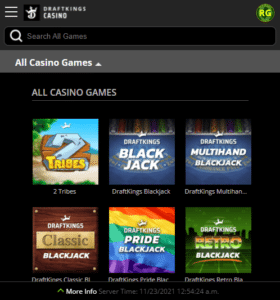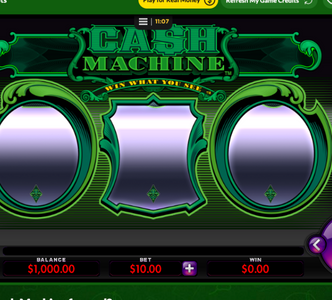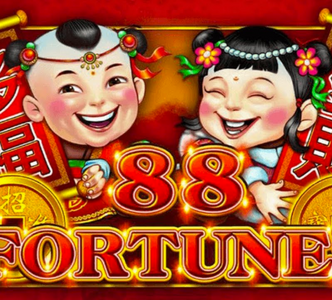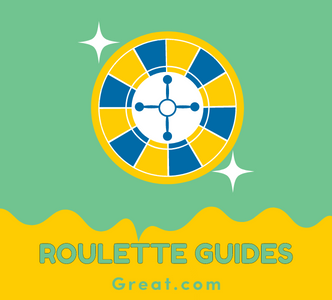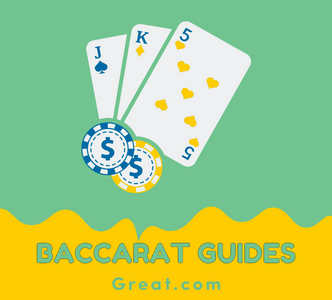Slots Strategy Guide
The Best Strategy to Win at Slots
What is the best strategy to win at slots? This is a common question for gamblers everywhere — including New Jersey online casino players.
Online slots or slot machines in casinos are typically the most popular and most played casino games. As online gambling continues to be legalized throughout the U.S., slots will continue to grow in popularity.
If you’re looking to play online slots or on a traditional slot machine, then you should have a slot playing strategy. This winning slots guide will walk you through some tips and strategies to help you win at both online slots and traditional slot machines.

Our Other Slot Guides
You came here for the slots strategy guide, and we get that! But, if you are looking for more guides or resources on online slots and slot machines, consider some of our other expert slot guides below.
Best Overall New Jersey Casinos for Online Slots
If you need an online casino to try your slot strategy, consider playing at some of the best online casinos in New Jersey.
Promotions
rating
Rating
ABV 100
ABV
Type of bonus
Type
Bonus code
Code
Max bonus
Max
Wagering
Wag.
Extra bonus
Extra
Min deposit
Min
Expiry time
Exp.
Free bonus
Free
Launch date
Launch
Full review
Rev.
A Slot Strategy Guide
Want a winning strategy to playing slots?
This slot strategy guide breaks down the best methods for winning at slots and provides tips for slot players. The topics we cover in this slot strategy include:
Jump to Other Slots Guides
Popular Slots at New Jersey Online Casinos
Below are some of the most popular online slots available at NJ online casinos. From Monopoly Megaways and Blood Suckers to Gonzo’s Quest, here are the New Jersey online slots you need to know about.
What is a Random Number Generator (RNG)?
Slot machines are built on the concept of random chance rather than skill. While plenty of gamblers try to calculate patterns in the results of a particular slot, these are exercises in futility. Casinos do everything they can to ensure the randomness of their slots, and it’s important for players to understand how that side of things works.
Casinos utilize software called random number generators (RNGs) in every slot machine they operate, whether they’re physical slot machines inside a live casino or strictly online slots.
RNGs work by using complex algorithms to calculate a variety of numbers. Each number it calculates is then able to be expressed as a particular combination of symbols across all of the slot’s reels. Every spin takes a random number from that collection of thousands of numerical sequences. Sometimes, that number gets expressed as a winning combination.
Software designers and casino establishments work hard to make sure that their RNGs are truly randomized and unbiased. Independent agencies test the software before it’s launched as well as after it’s been in use to check for bias. Other licensing and regulating authorities regularly test the software, as well, to guarantee that neither casinos nor players can tamper with the program.
In short, RNGs are how players like you know that you’re gambling on a completely randomized game. You don’t have to worry about the casino trying to unfairly take more of your money, and you also don’t have to concern yourself with learning any special betting systems or calculating potential outcomes. You can just press the “spin” button and watch the screen light up.
Random Number Generator Notes
- RNG is short for Random Number Generator and every slot machine uses it.
- RNGs are algorithms that randomly determine the result of your slot spin.
- 3rd party companies test casino RNGs for accuracy to ensure fairness.
Read Casino and Slot Reviews
Reviews of casinos and slots offer more information to help you decide what slot game to play and where to play it. There is no shortage of websites for online casino reviews and slot reviews. However, be careful to make sure you are getting unbiased reviews and not just fluff from online casino affiliates who just want you to play at one of the casinos they recommend so they get commission.
Great.com is an online casino affiliate, but we are dedicated to providing honest reviews of NJ online casinos using data from independent tests conducted by our team on each casino.
If you want to increase your chances of winning at slots, research the slots before and read reviews. This will help you understand what another person’s experience was while playing that slot game. Did they win? Did they have any issues with the slot or the casino?
You can also browse through forums dedicated to discussing online casinos or spend some time on Reddit looking at which online slots people recommend the most.
There are even Facebook groups out there for people to share details about online casinos. Basically, use the plethora of resources out there to see how other players feel about a particular casino or slot and see which ones are the best options for you.
Pick the Right Casino and Slot
Experienced slot players like to make sure that they’re playing on slots that give them the best advantages and greatest opportunities to win big. They accomplish this by researching aspects called the return to player, hit frequency, and volatility.
Return to Player (RTP)
While every slot is calibrated for true randomization, there is still an inherent risk in playing. Because casinos need to make money, the RNGs make it so that the casino has a slight edge when it comes to how many numbers it comes up with that result in winning combinations.
As a result, you’ll almost never see a slot with a 100% RTP rate because the casinos need some sort of advantage to make a profit and keep their doors open. Instead, you’ll probably see online slots with RTPs in the 90-95% range (though some may go as high as 98%).
What does this mean for you as a player? If you bet $1 for every spin and play for 100 rounds, you’ll have spent $100 on the game. If that slot has a 95% RTP, then on average you’ll win back $95 of that $100. If you’d like to play on a slot that gives you a better overall chance of not losing a significant amount of money, look for one that has a high RTP.
Keep in mind that the RTP doesn’t indicate how often you can expect to win. It relates more directly to your long-term chances of winning.
Many slots list their RTPs in the game settings or in the “Help” section, but you may have to dig around online for a particular slot’s RTP. Just Google the slot’s name with “RTP” to see where it’s listed amongst other slots’ percentages.
Hit Frequency
Tied into all of this is also the concept of hit frequency. This is a percentage of how often a slot’s reels stop on a winning combination: basically, how often the machine pays out. Hit frequency refers to the average percentage of winning spins from the total number of spins.
If a slot has a hit frequency of 15%, then it will stop on a winning combination 15% of the time. However, do keep in mind that a higher hit frequency also means a lower potential jackpot. Slots that have lower hit frequency percentages will have higher jackpot amounts.
How can you know a slot’s hit frequency? Slots won’t offer up that information directly either. Look for these details:
- Jackpot size: When a slot offers a large progressive jackpot, your chances of frequent wins go down. A jackpot that’s seeded at $100,000 or more will offer fewer average payouts.
- Multipliers: More multipliers can be exciting in the moment, but big multipliers typically signal lower hit frequencies. If you want a higher hit frequency, look for small or no multipliers.
- Payout sizes: Take a look at what the lowest prizes amount to — if the lowest payout is just one or two credits, then you’re probably looking at a slot with a high hit frequency. On the flip side, if a game has a “low” prize of five credits or more, you’re dealing with a lower hit frequency.
- Bonuses: Bonuses are fun and add to a slot’s entertainment value, but lots of free spins, second-screen bonuses, or scatters often equal a lower hit frequency. Meanwhile, a slot that offers only some free spins will probably pay out more often.
Volatility/Variance
Some people refer to the concept as volatility while others call it variance, but the idea refers to how a slot rewards its players. This is tied very closely to hit frequency, but rather than referring to overall payout averages, volatility is about how often and how much a slot pays out on a smaller level.
A high volatility slot is one that goes for a long period of time without paying out any rewards until finally a successful spin offers a considerable payout (and so, the hit frequency is lower).
A low volatility slot offers payouts more often, but they’re at a lower monetary value in order to compensate for the higher win rate (which means that the hit frequency is higher).
It’s rare, but some slots do provide their own volatility rating, like the Golden Nugget online casino.
Mostly, you’ll have to determine a slot’s volatility the same way you would the hit frequency. Look at the paytable for details like the jackpots and max bets. A sky-high jackpot would mean a high volatility slot; a large max bet often means a lower volatility slot.
You can also try the slot in demo mode to get a sense of its volatility. If you get a lot of low-value wins, then you’re playing on a low volatility slot.
Another option is to always look up the slot’s reviews online for all of these ratings.
Stay smart and make sure that you’re depositing your money at a legitimate online establishment. One way to be sure of this is to check the licenses and/or certifications of the casino.
A license shows that an online casino has met predetermined guidelines and minimum standards related to fair gameplay and policies to protect players’ identities and sensitive data.
Online casinos should show their licensing seals right on their websites. Sketchy online casinos might put up a phony seal, so make sure that the seal is clickable. The embedded link there should bring up a page on that licensing authority’s website allowing you to look up that casino’s license or even disclosing the details of their license.
Different jurisdictions have their own licensing authorities, so a casino that’s based out of Gibraltar will answer to a separate regulating body than one based out of New Jersey.
This is also where reading reviews can help you once again. If an online casino isn’t above-board, people will be very vocal about it in their reviews and forum posts.
Return-to-player (RTP) refers to the rate at which that online slot will pay you back on your wagers. For example, a 98% RTP means a game will return you $0.98 per $1.00 wagered on it. This return is based on the average for that game and is not always indicative of your experience. The higher the RTP, the more likely you are to win — albeit smaller wins.
Online casinos will often run promotions and bonuses where they will offer you free spins on specific online slots. If you can find slots that are part of a casino promo, you will be able to play with the casino’s money and not your own. Thee free plays can increase your chances of winning or at least mitigate your own financial loss.
New Jersey Online Casino Reviews
Practice on Free Slots
This is where you get to have some fun. So many slots are themed around different concepts or licensed properties. Popular TV shows and movie franchises often have tie-in slots you can play that feature favorite characters.
Maybe you love motorcycles or muscle cars — you’ll find plenty of slots based around those themes. Or maybe you love fantasy, so you’d be more interested in playing a slot with a mythological motif or even one that’s covered in unicorns. Honestly, the sky’s the limit when it comes to finding a slot that aesthetically appeals to you.
Many, but not all, online casinos let players try out slots for free to test it out. Think of it as playing on “practice mode” because you’re looking at all of the game’s details and giving it a literal spin without wagering any real money yet.
This also allows you to get a feel for an individual slot’s gameplay. Maybe you don’t like how the symbols are animated or you think the spins resolve too slowly for your personal pace; now you know that you won’t enjoy that game and haven’t wasted any money trying to figure that out. On the other hand, maybe you’ve fallen in love with the theme and play style, so you’re ready to look more deeply at the paytable.
You’ll find free slots online in two different categories:
- Demo Slots: A demo slot is a free online slot for you to try or practice on which means you can play it, but you can’t actually win any real money. Most online casinos will allow you to try the slot in a demo setting which is helpful for learning the gameplay, but doesn’t offer the same excitement or potential of real money slots.
- Slot Free Spins: Slot free spin bonuses are typically part of casino promotions, and they give you free credits to play slots for real money. These are not the same as demo play slots because you can actually win money with these free spins while also learning how to play the slot game.
Free Online Slots
- Free online slots are a great way for you to learn the gameplay before wagering your own money.
- Many online casino bonuses will include free spins on qualifying slot games.
- Slot games often include bonus rounds with free spins for real money.
If you’d like to learn more and find free online slots, read our free online slots guide.
Understand the Slot Paytable, RTP, and Volatility
Beyond just appearances and gameplay, you should look at the paytable (and paylines), RTP, and volatility of the slot you want to play.
You can glean quite a bit of information from a slot’s paytable. You can typically find it by opening up an online slot and looking for the “information” icon, usually near the bottom of the screen. This is why it’s especially great to choose an online casino that lets you demo play different slots before dedicating your money to any one game in particular.
The paytable will open in a new pop-up window, and it will list all of the winning combinations possible along with the amount that will be paid out if you get one of them. The table will also tell you which symbols are wilds and which ones are scatters, plus their functions throughout the main game and any bonus games.
In addition, the paytable should tell you about bonus rounds as well as minimum and maximum prizes. If the slot has a progressive jackpot, then the table is where you can find all the details on how to play for it. This is important because some progressive jackpots require that you play on all paylines or to make a max bet to be eligible.
Make certain that you check through every page of the paytable to catch every detail about which combinations you’ll want to hit and how you can expect the extra features to work.
Paylines and Betting
While you might be playing on a retro slot that uses only one payline across three basic reels, that’s highly unlikely. Most slots now have multiple available paylines that you can bet on to increase your odds of hitting some sort of winning combination.
For example, if you play a slot with nine active paylines, you have to keep an eye on all three horizontals but also some diagonals and zig-zags.
And if you select 20 paylines?
That’s a lot of options for ways to win. Just remember that you’re betting on each of those lines. So, if you’re betting 1 credit per line and you want to bet on 20 paylines, you’re wagering 20 credits per spin.
Not all slots let you choose your paylines, so if you want to try this type of slot, look for a section called “Lines” near the “Spin” button when you’re trying out the slot in demo mode.
Return to Player (RTP)
While every slot is calibrated for true randomization, there is still an inherent risk in playing. Because casinos need to make money, the RNGs make it so that the casino has a slight edge when it comes to how many numbers it comes up with that result in winning combinations.
As a result, you’ll almost never see a slot with a 100% RTP rate because the casinos need some sort of advantage to make a profit and keep their doors open. Instead, you’ll probably see online slots with RTPs in the 90-95% range (though some may go as high as 98%).
What does this mean for you as a player? If you bet $1 for every spin and play for 100 rounds, you’ll have spent $100 on the game. If that slot has a 95% RTP, then on average you’ll win back $95 of that $100. If you’d like to play on a slot that gives you a better overall chance of not losing a significant amount of money, look for one that has a high RTP.
Keep in mind that the RTP doesn’t indicate how often you can expect to win. It relates more directly to your long-term chances of winning.
Many slots list their RTPs in the game settings or in the “Help” section, but you may have to dig around online for a particular slot’s RTP. Just Google the slot’s name with “RTP” to see where it’s listed amongst other slots’ percentages.
Hit Frequency
Tied into all of this is also the concept of hit frequency. This is a percentage of how often a slot’s reels stop on a winning combination: basically, how often the machine pays out. Hit frequency refers to the average percentage of winning spins from the total number of spins.
If a slot has a hit frequency of 15%, then it will stop on a winning combination 15% of the time. However, do keep in mind that a higher hit frequency also means a lower potential jackpot. Slots that have lower hit frequency percentages will have higher jackpot amounts.
How can you know a slot’s hit frequency? Slots won’t offer up that information directly either. Look for these details:
- Jackpot size: When a slot offers a large progressive jackpot, your chances of frequent wins go down. A jackpot that’s seeded at $100,000 or more will offer fewer average payouts.
- Multipliers: More multipliers can be exciting in the moment, but big multipliers typically signal lower hit frequencies. If you want a higher hit frequency, look for small or no multipliers.
- Payout sizes: Take a look at what the lowest prizes amount to — if the lowest payout is just one or two credits, then you’re probably looking at a slot with a high hit frequency. On the flip side, if a game has a “low” prize of five credits or more, you’re dealing with a lower hit frequency.
- Bonuses: Bonuses are fun and add to a slot’s entertainment value, but lots of free spins, second-screen bonuses, or scatters often equal a lower hit frequency. Meanwhile, a slot that offers only some free spins will probably pay out more often.
Volatility/Variance
Some people refer to the concept as volatility while others call it variance, but the idea refers to how a slot rewards its players. This is tied very closely to hit frequency, but rather than referring to overall payout averages, volatility is about how often and how much a slot pays out on a smaller level.
A high volatility slot is one that goes for a long period of time without paying out any rewards until finally a successful spin offers a considerable payout (and so, the hit frequency is lower).
A low volatility slot offers payouts more often, but they’re at a lower monetary value in order to compensate for the higher win rate (which means that the hit frequency is higher).
It’s rare, but some slots do provide their own volatility rating, like the Golden Nugget online casino.
Mostly, you’ll have to determine a slot’s volatility the same way you would the hit frequency. Look at the paytable for details like the jackpots and max bets. A sky-high jackpot would mean a high volatility slot; a large max bet often means a lower volatility slot.
You can also try the slot in demo mode to get a sense of its volatility. If you get a lot of low-value wins, then you’re playing on a low volatility slot.
Another option is to always look up the slot’s reviews online for all of these ratings.
Know Your Slot
- Paytables outlines your odds and payouts and gives context to your slot game.
- RTP indicates how likely you are to win at that game.
- Volatility indicates how much or little a slot is likely to pay out while palying.
Click below to visit some of the top New Jersey online slots.
Set Slot Spending Limits
Slots can be tons of fun to play, but it is easy to lose track of time when you’re looking for that jackpot combination.
Decide for yourself how much time and money you’re willing to spend playing online slots, and hold yourself to those limits. Maybe you want to limit yourself to 30-minute sessions, so set an alarm for yourself before you start spinning so that you don’t waste several hours of your time.
Or perhaps you have only so much money from your budget that you can afford to lose if you have a bad streak. Write down the amount that you’re okay with losing and keep it next to you after you’ve deposited your money. This way you’ll be able to easily see it and keep yourself honest. When you see your credits dwindling away, stay true to the promise you made yourself and log off when you get close to zero.
Another way to calculate your limits is to look at it as an hourly expense. Usually, people can clock about 500 spins per hour. If a slot has a 95% RTP and you’re paying $1 per spin, that’s an hourly cost that you can calculate as so:
5% x 500 spins x $1/spin = $25 per hour to play
When you break the cost down by an hourly rate, you can better determine how much of your time (and wages) you’re willing to dedicate to online slots.
Need Gambling Help?
Slots are meant to be fun, they are not some magical “get-rich-quick” game that is guaranteed to make you a millionaire. In fact, it’s quite the opposite. Physical and online slots are the most popular casino games in the world because they are the most lucrative for casinos. Slot machines and their online counterpart have highly predictable outcomes (RTP) that provide casinos with more stable outcomes than other games that allow the player to make decisions affecting the house’s odds.
With that in mind, it’s important to remember that you should play slots for entertainment not to win big — because getting rich off of playing slots is not likely.
Need Gambling Help?
If you’re struggling with gambling addiction or believe you may be developing a problem, consider learning more about the options available to help you gamble responsibly or to sign up for the New Jersey Casino Gambling Self-Exclusion Program.
View Our Other Casino Guides
Would you like to learn more about other casino games besides slots? We have guides for roullete, blackjack, and even sports betting. Click through to read our other gambling guides.
Slot Strategy FAQs
The best strategy for playing slot machines or online slots is to research several slots and casinos beforehand to find a slot that fits your gambling needs based on factors like gameplay, RTP, volatility, min/max wager, and other characteristics that you find important.
Slots — at least regulated slots — are completely random. Nothing you do on a slot affects the likelihood of winning a slot spin, but you can increase your odds of winning by choosing a slot game with a high RTP. A slot with a 98% RTP compared to a 95% RTP gives you a 3% better chance of winning.
You can also increase your chances of winning big by playing jackpot slots and wagering the amount needed to trigger the bonus rounds. This won’t increase your odds of winning per spin, but it will make you more likely to win larger payouts.
Are more paylines better for slots? Should you wager every payline on your slot? Determining how many paylines to play will depend on your slot game and your gambling risk/reward. The more paylines you bet per spin means more odds of winning on that spin and also increases your odds of hitting a jackpot or satisfying the bonus round requirements for that slot game. Most slots have a minimum wager and minimum number of paylines needed to enter these bonus levels, so it’s advisable to wager the bonus minimums. However, you don’t increase your odds by wagering more on each payline — it only increases your payout.


